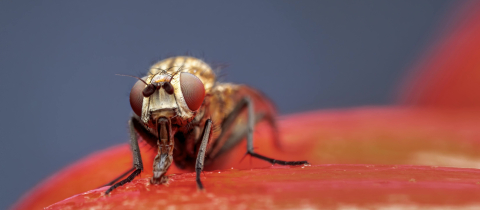If you have avoided having poinsettias in your home because of small children or animals, you’re not alone. But despite the commonly held belief that poinsettias are toxic, they aren’t. This myth seems to have originated in 1919 with a misattributed poisoning of a child and perhaps persisted because several members of the same family as the flower are quite toxic.
Despite fears of poinsettia poisonings in over 22 thousand calls made to American Poison Control about children eating the red leaves, there wasn’t a single fatality. A 50 lb (22.68 kg) child would need to eat 500-600 leaves to exceed the doses that have been proven experimentally safe.
These leaves, however, aren’t meant for your salad, so eating even a couple can give you an upset stomach or cause vomiting. This is the reaction commonly seen in dogs and cats, but since these symptoms are mild, oftentimes no veterinarian care is required, although you should contact your vet if your pet is sick for more than a few hours.
The biggest risk comes from touching, rather than eating, the plant, as it produces latex from its stem (like thousands of other plants) that can cause skin or eye irritation in humans and non-humans alike.







